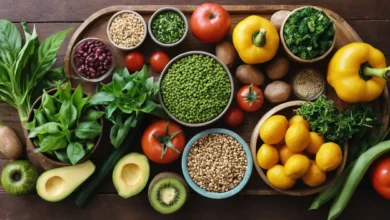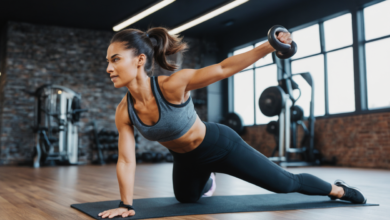Essential Vitamins and Supplements Every Woman Should Consider for Optimal Health

Navigating the world of vitamins and supplements can be overwhelming, especially for women who have unique nutritional needs. Understanding which vitamins and supplements are essential can help support overall health and well-being. In this article, we’ll explore key vitamins and supplements that every woman should consider, empowering you to make informed choices for your health journey.
1. Vitamin D
Vitamin D is crucial for bone health, immune function, and mood regulation. Many women, especially those living in northern climates or who spend most of their time indoors, may be deficient. A study published in the Journal of Clinical Endocrinology & Metabolism found that adequate vitamin D levels are linked to improved mood and lower rates of depression. Consider incorporating vitamin D-rich foods like fatty fish and fortified dairy, or take a supplement if needed.
2. Calcium
Calcium is essential for maintaining strong bones and preventing osteoporosis, particularly as women age. The National Osteoporosis Foundation recommends that women aged 19-50 get 1,000 mg of calcium daily. Dairy products, leafy greens, and fortified plant-based milks are excellent sources. If dietary intake is insufficient, a calcium supplement may be beneficial.
3. Iron
Women are at a higher risk of iron deficiency due to menstruation and dietary habits. Iron is vital for transporting oxygen in the blood and preventing fatigue. The World Health Organization emphasizes the importance of iron for women of reproductive age. Foods rich in iron include red meat, beans, lentils, and spinach. A supplement may be necessary for those who struggle to meet their iron needs.
4. Folate (Vitamin B9)
Folate is crucial for women of childbearing age, as it helps prevent neural tube defects during pregnancy. The Centers for Disease Control and Prevention recommends that women take 400 mcg of folic acid daily before and during pregnancy. Folate can be found in leafy greens, citrus fruits, and fortified cereals. A prenatal vitamin is an excellent way to ensure adequate folate intake.
5. Omega-3 Fatty Acids
Omega-3 fatty acids support heart health, brain function, and can reduce inflammation. Women may benefit from omega-3s, particularly during hormonal changes. Fatty fish like salmon and flaxseeds are rich sources, but supplements such as fish oil or algae oil can be an effective alternative for those who don’t consume fish.
6. Vitamin B12
Vitamin B12 is essential for energy production, brain health, and red blood cell formation. Women following a vegetarian or vegan diet may be at risk for deficiency, as B12 is primarily found in animal products. A supplement or fortified foods can help meet daily requirements, which is 2.4 mcg for most adults.
7. Magnesium
Magnesium plays a vital role in over 300 biochemical reactions in the body, including muscle and nerve function, blood sugar control, and blood pressure regulation. Many women don’t get enough magnesium from their diet. Incorporating nuts, seeds, whole grains, and leafy greens can help, but a supplement may be beneficial for those with higher needs or dietary restrictions.
8. Probiotics
Probiotics support gut health and can positively impact overall wellness. Women may experience hormonal fluctuations that can affect gut health, making probiotics an excellent addition to the diet. Yogurt, kefir, and fermented foods are natural sources, while supplements can provide a more concentrated dose.
9. Vitamin C
Vitamin C is an antioxidant that supports the immune system and skin health. It also aids in the absorption of iron from plant-based sources, making it especially important for women with dietary restrictions. Citrus fruits, strawberries, and bell peppers are excellent sources. A daily supplement can help ensure adequate intake, particularly during cold and flu season.
10. Biotin
Biotin, also known as vitamin H, supports healthy hair, skin, and nails. Women often seek biotin supplements for improved hair growth and strength. While many foods contain biotin, such as eggs, nuts, and whole grains, a supplement can provide additional support for those experiencing hair thinning or brittle nails.
Conclusion
Incorporating essential vitamins and supplements into your daily routine can significantly impact your health and well-being. Each woman’s needs may vary based on factors like age, diet, and lifestyle, so it’s essential to consult with a healthcare professional before starting any new supplement regimen. By prioritizing these key nutrients, you can empower yourself to live a healthier, more vibrant life.





